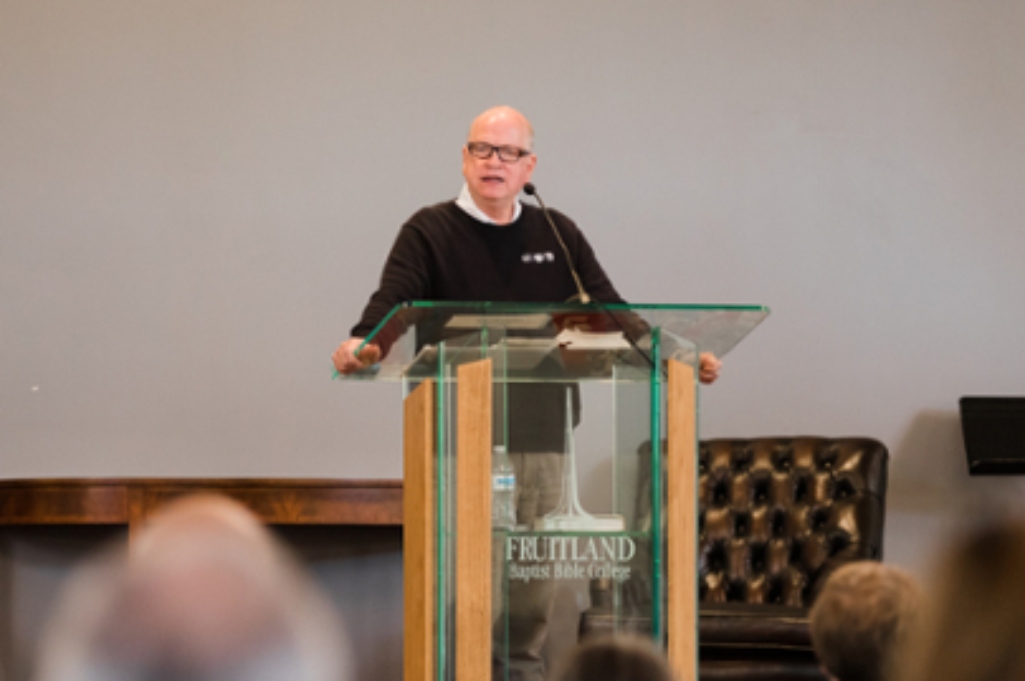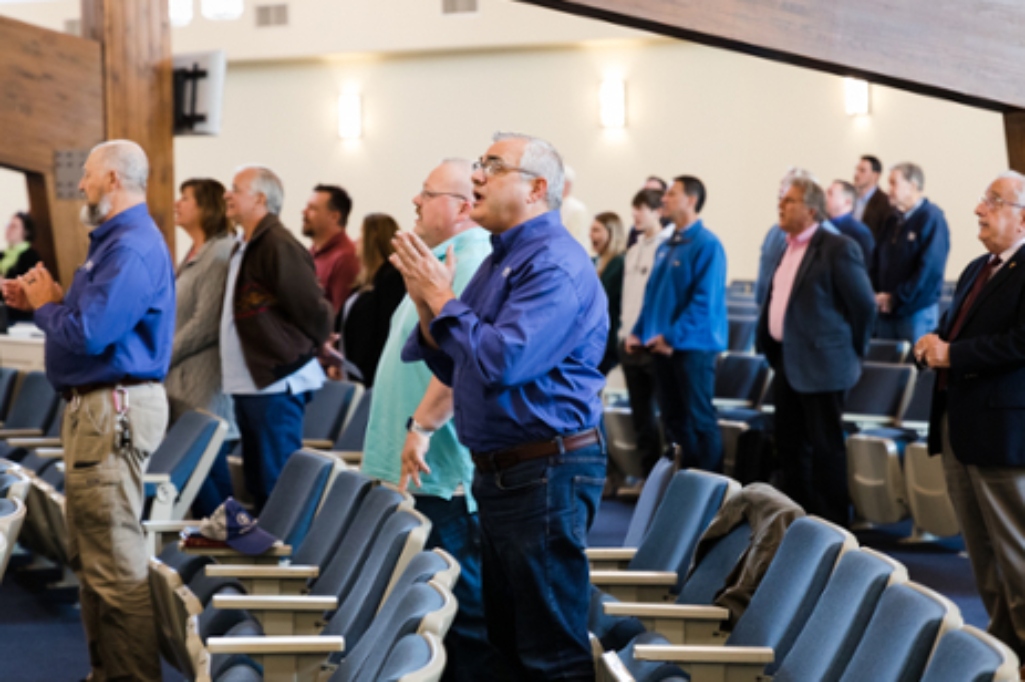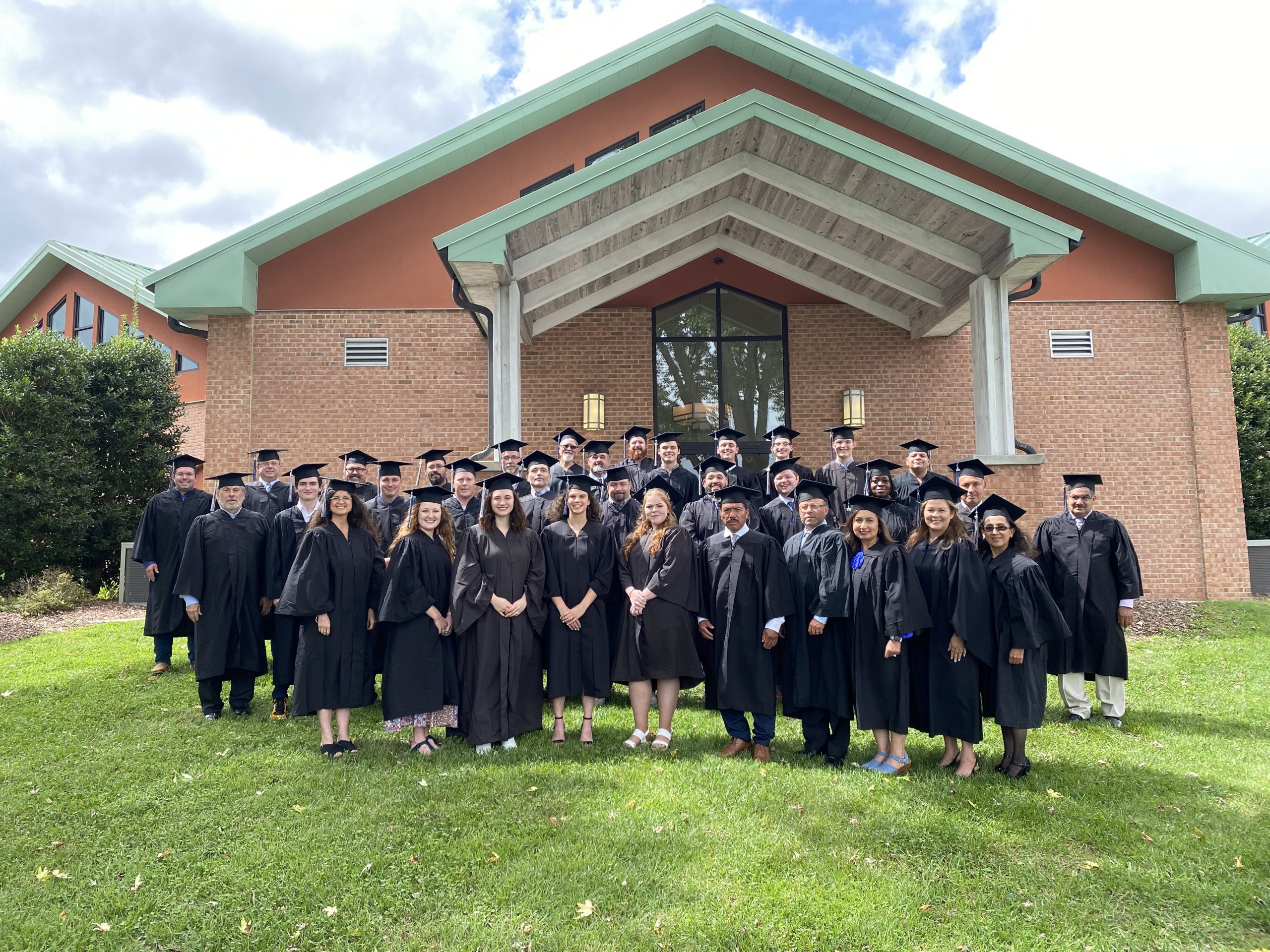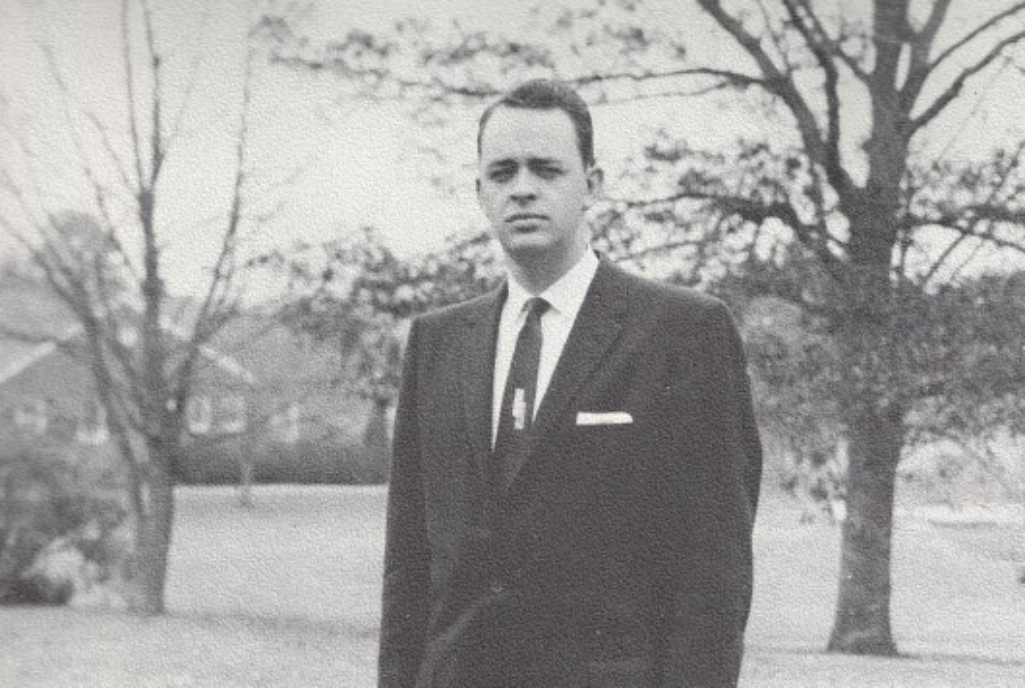
On Oct. 3, Southeastern Baptist Theological Seminary (SEBTS) cohosted an all-day conference about the sufficiency of Scripture on Fruitland Baptist Bible College’s campus in partnership with Fruitland and the Baptist State Convention of North Carolina.
“We live in a day where the authority and sufficiency of Scripture is being questioned and attacked at every turn: in the academy, in the public square, and even within those communities that claim to follow Christ,” commented Steven Wade, professor of pastoral theology at SEBTS. “It is imperative that the Church stand firm on their belief in both the authority and the sufficiency of Scripture with great conviction and clarity, teaching and exemplifying what these commitments mean and how they are to be applied to life and practice.”
As a confessional Southern Baptist institution, SEBTS stands where Baptists have stood historically and where Baptists stand today, teaching and confessing the sufficiency of Scripture in all matters of doctrine and practice. As an expression of this resolute stance, the Sufficiency of Scripture Bible Conference challenged regional pastors and church leaders to maintain an unwavering commitment to the sufficiency of Scripture even amid cultural pressures.
“At Southeastern we believe wholeheartedly and unreservedly in the authority, infallibility, inerrancy, and sufficiency of Scripture,” shared Danny Akin, president of SEBTS. “These are the doctrines and convictions concerning Scripture that we teach our students and require our faculty to affirm and teach without hesitation or reservation. That is why we were delighted to partner with Fruitland and N.C. Baptists to champion the sufficiency of Scripture for all of life, ministry, and mission.”
“At Southeastern we believe wholeheartedly and unreservedly in the authority, infallibility, inerrancy, and sufficiency of Scripture.”
Danny Akin
In the first keynote address of the conference, Wade preached from 2 Peter 1:3-21 on the sufficiency of Scripture for pastoral ministry. “God has given us everything that we need to accomplish everything that he intends for us to accomplish in the task of shepherding his people,” noted Wade. “God transforms us by his word through his Spirit in community.” The pastor’s task relies fully on the sufficiency of Scripture, as Wade reminded attendees, because without it, the pastoral task would be fruitless and futile.
Following the first session, Wade joined Steve Scoggins, senior pastor of First Baptist Church of Hendersonville, N.C., and David Horton, president of Fruitland Baptist Bible College, in a panel discussion about the sufficiency of Scripture for pastors and churches today. Though both Horton and Scoggins acknowledged the deficient views of Scripture prevalent in many Baptist churches, Scoggins shared how encouraged he is by the faithful pastors he knows personally and by the faculty, staff, and students at SEBTS. “Southeastern is firmly committed to the inerrancy and sufficiency of Scripture,” commented Scoggins.


In the second session, Akin explained seven reasons why the Bible is sufficient for the mission of God according to 2 Timothy 3:14-4:5. The Bible is sufficient because (1) it is what God uses to lead people to Jesus, (2) it is the divinely inspired word of God, (3) it is what God uses to mature his people, (4) it is what will prepare his people for judgment, (5) it convicts and it encourages his people, (6) it gives his people sound teaching to live by, and (7) it is what God uses to complete and fulfill his people’s ministry. “If you stand on this book and preach this book, God will honor and bless your ministry, and you will finish well,” Akin charged those in attendance.
“If you stand on this book and preach this book, God will honor and bless your ministry, and you will finish well.“
Danny Akin
In the third session, Scott Pace, dean of The College at Southeastern and associate professor of pastoral ministry and preaching at SEBTS, preached from James 1:19-25 and reminded attendees that shortcomings in ministry are owing to the Christian’s lack of proficiency in Scripture and not to any insufficiency in Scripture. By the power and illuminating work of the Holy Spirit, Scripture supplies Christians with everything they need to persevere in ministry. “When it comes to our spiritual life, there is no substitute, there is no alternative, there is no other option for what the word of God supplies,” shared Pace. “The one thing that will get us through in ministry and in life is the word of God. There is one essential that will get us through ministry and that is the word of God.”
Offering the final keynote address for the evening, Jim Shaddix, professor of preaching and W. A. Criswell Chair of expository preaching at SEBTS, shared from Psalm 19 about God’s multi-definition broadcast of his glory. Calling attendees to marvel at the reflection of God’s glory in nature, Shaddix reminded them that “physical creation alone is easy to misinterpret,” highlighting how significant it is that God chose to broadcast his glory through his written word. “The value of the Scriptures is magnified in this passage of Scripture,” observed Shaddix. “We are pointed to the absolute sufficiency of the word of God to do everything in our lives that God desires to bring about.”
The sufficiency of Scripture, however, is not an end in itself. As Shaddix remarked, even the sufficiency of Scripture points Christians to the highest definition and clearest broadcast of God’s glory, namely Jesus Christ — the radiance of the glory of God. “The greatest manifestation of the sufficiency of Scripture is that it shows us Jesus; it gets us to Jesus,” noted Shaddix.
“The greatest manifestation of the sufficiency of Scripture is that it shows us Jesus; it gets us to Jesus.“
Jim Shaddix
“In my lifetime I have not only witnessed the battle for the Bible in the Southern Baptist Convention but also the devastating effects of denying the authority, power, and sufficiency of God’s word,” shared Akin. “What my generation fought to reclaim will likely need to be renewed in every future generation as they seek to walk in faithfulness to King Jesus. We hope the Sufficiency of Scripture Conference allows church leaders a moment to renew their commitment to the Bible as the final authority for life, belief, and practice.”
(EDITOR’S NOTE – Chad Burchett is a writer for the SEBTS office of communications.)


